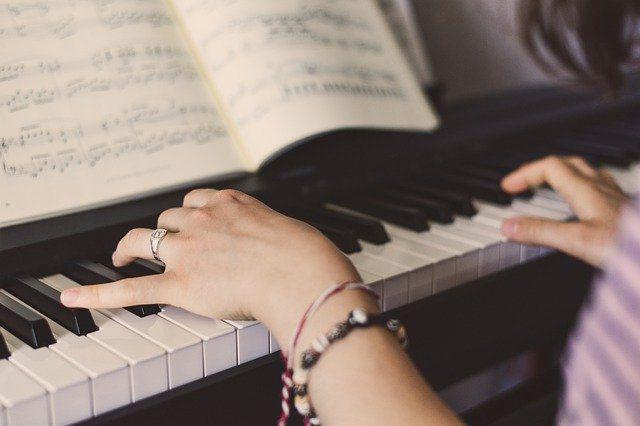Are you wondering how to practice piano effectively? Want to get more out of your practice sessions?
If you’ve heard it once, you’ve heard it a million times… “practice makes perfect.”
Throughout every musician’s life, we are told that practice is the one thing we must always make time for.
Whether we are beginners, committed students, or seasoned professionals, the need for consistent practice doesn’t change.
What changes for many pianists, however, is the amount of time they can devote to practice.
A catch 22 – More ability, less time
It is a strange but true phenomenon that the better you get at something, the less time you generally have to focus on improvement. Doctors who are highly sought after have less time for professional development, artists who have busy promotional schedules have less time for focus on their craft, and so on.
The same happens for musicians. Just when you begin to achieve some progress in your studies, you can find the same things that you were hoping for (more performance opportunities, etc) can then become the same things that prevent you from having as much time to practice as you once had.
If you are finding it hard to focus on your practice routine even when you are passionate and committed, it’s not that you don’t believe practice is important.
Rather, these results likely indicate how difficult it is to maintain a consistent practice strategy– even when you truly desire to improve.
If you find yourself performing, or called upon to use your new-found talents, your available time for practice decreases.
There’s an important solution available to all of us pianists…
Instead of trying to find more time to practice, the key to an effective practice strategy is to maximize the time and effort that we utilize when we do practice.
Here’s three tips to formulating more effective practice routines so that you can continue your progress when your schedule is unfriendly to consistent practice.
1. Plan ahead
Study after study has proven that the key to an effective practice strategy is NOT the length of time, but rather the deliberate choice of outcomes and skills you will work on. To combat the problem of directionless practice, the best route is to plan your practice sessions in advance.
For example, you and your instructor can create a schedule of exercises that you will work on throughout the week. Rather than simply leaving this up to chance when you get your assignments, take the time to list on which days you’ll work on those specific exercises. This way, you sit down at the piano at each practice session with a clear goal and outcome you are looking for, and this will prevent the aimless practice that ends up using up too much time and not resulting in adequate progress.
2. Create a consistent process
Another key to learning how to practice piano effectively is making your practice sessions routine and predictable.
While there are dozens of ways to be distracted while you practice, there is only one way to avoid them – by eliminating them before you start.
Putting away your phone is an obvious start, but there are other ways to maintain your consistency every time you sit down at the piano.
Pick warm-ups and technical exercises that you repeat every time you begin, and try to keep a regular approach to learning your material.
This way you avoid the pressure of reworking your strategy every time you have new music to learn.
This attention to detail will help you to maximize every minute of your available practice time.
3. Keep a record of your progress
Waiting for a weekly lesson to determine how you have improved can actually work against your progress.
While it’s clearly good to get professional advice to evaluate your improvement, keeping track of the incremental gains you make from day to day can be both motivating and extremely beneficial to your piano playing.
By tracking the songs, skills, and techniques that you have mastered, you will build both your confidence and your effectiveness during your practice sessions.
This can be done by simply making a short memo after each practice session, either written or electronic, that details what you achieve and where you will begin next time. The instant feedback you provide in these short notations go a long way to increase the effectiveness of your practice sessions.
Improve by improving your practice
These keys to more effective practice sessions and learning how to practice piano effectively could be summarized in just one phrase – to improve your results from your limited time to practice, improve the way you practice.
By planning ahead, creating a consistent practice process, and keeping careful record of your progress between weekly lessons, you will vastly increase your effectiveness and provide a solid foundation for constant progress in your piano playing.
While it’s true that no amount of practice can make us perfect musicians, we can always improve our practice – which will improve everything else.
Allen C. Paul


